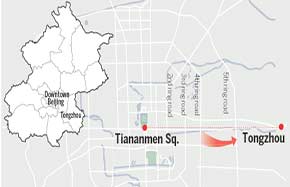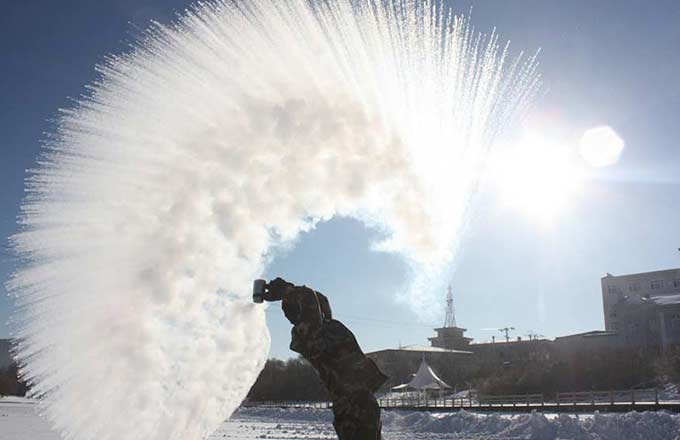Heating system at highest altitude starts operation in Tibet
LHASA - China's highest-altitude heating system was turned on this week in Nagqu Town, Tibet Autonomous Region, benefiting around 120,000 locals.
Homes across an area of 1.66 million square meters are now hooked up to the heating network, authorities said.
Nagqu Town, in an alpine region of the northern Tibetan plateau, is 4,500 meters above sea level. The average temperature is around 1-2 degrees Celsius all year round, dropping to lows of minus 30 degrees Celsius in winter.
Locals used to burn cow dung and coal to keep their houses warm.
In 2013, a 1.15-billion-yuan (170 million U.S. dollars) project was launched in Nagqu to build drainage and heating systems.
Tibet has an average elevation of over 4,000 meters with a substantial day-night temperature difference.
Tibet is installing heating systems in counties at high altitude, and construction of heating systems has finished in the urban area of Lhasa, which is at an average elevation of 3,650 meters.
Homes across an area of 1.66 million square meters are now hooked up to the heating network, authorities said.
Nagqu Town, in an alpine region of the northern Tibetan plateau, is 4,500 meters above sea level. The average temperature is around 1-2 degrees Celsius all year round, dropping to lows of minus 30 degrees Celsius in winter.
Locals used to burn cow dung and coal to keep their houses warm.
In 2013, a 1.15-billion-yuan (170 million U.S. dollars) project was launched in Nagqu to build drainage and heating systems.
Tibet has an average elevation of over 4,000 meters with a substantial day-night temperature difference.
Tibet is installing heating systems in counties at high altitude, and construction of heating systems has finished in the urban area of Lhasa, which is at an average elevation of 3,650 meters.



















